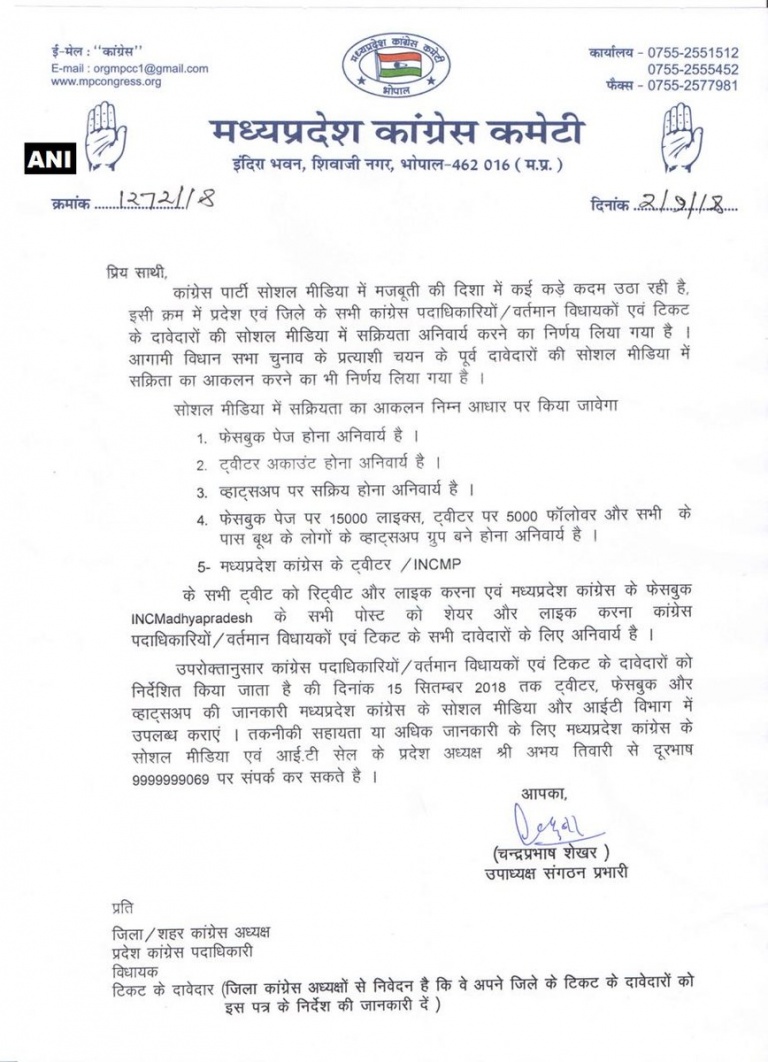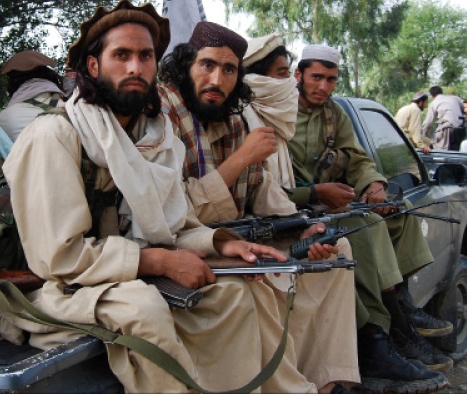POLITICS
In Madhya Pradesh it has been made mandatory to have 15,000 Likes and 5,000 Twitter Followers if one aspires for a part ticket in the upcoming assembly elections.
Dhara Vishwanathan is a Writer-Commentator based in Hyderabad.
We live in the age of social media and from finding a soul mate, declaring a divorce, travelling to a new destination, attending a funeral to speaking our minds out- we literally breathe, eat, drink and sleep in the bubble.

The social media syndrome has taken us so much into its shackles that the more we try to come come out of it the more we find that we are entrapped. The obsession with the Social Media has come to an altogether fresh extreme with the Madhya Pradesh Congress Committee (MPCC) sending a letter to all the aspiring candidates that in order to get a party ticket they must have social media influence. According to the letter published by ANI on 2nd September, any candidate who wishes to get the party ticket must have 15,000 likes on their Facebook fan page and 5,000 followers on Twitter.

The Madhya Pradesh assembly elections will unfold later this year. The letter also demands that the candidates should have WhatsApp groups of booth level workers. They are also obliged to like and retweet every post on the MPCC’s twitter account.
The candidates have also been asked to submit details of their social media if they want consideration for part tickets.
Today social media presence has become one of the significant criteria for party’s candidature and this brings forward an important question regarding how the virtual I often more precious in the contemporary culture in contrast to the real. Suppose there is a silent part worker, in a remote village that has dedicated his life to the cause of the people but is not available on social media, does not have a Facebook of Twitter account and neither uses a smartphone that has the WatsApp application- will such a person be less eligible that somebody who makes use of all the social media platforms, gets instant likes and has thousands of followers but has little authentic work behind him transcending the rhetoric?
Nobody can deny the fact that social media has enabled think tanks, media agencies and qualitative schemes to gain a large audiences instantly among people who could not earlier be so conveniently targeted but does that mean that it can be seen as a primary criteria for leadership ?
In recent times we have seen how the ruling establishment has dedicated a whole cell to the social media for managing these accounts and this has often meant that people who speak and write against the establishment are killed and threatened. It is ironic to see how the social media which could be used meaningfully has often made us blind to real issues.
Does social media never generate hate campaign, do we know nothing of trolling, how groups are employed to stalk people’s social media profiles online and use surveillance machinery against them and what to say about the option to pay and increase social media likes and follower-ship in the absence of real credibility.
The alienation of several ground level workers, who may not be at ease with new technology and social media for those who may use social media but not their agency, raises serious doubts on the credibility of our own democratic culture. It is high time that we questioned this premise and asked ourselves whether the virtual should seriously be allowed to take over the real in life, relationships or politics?














